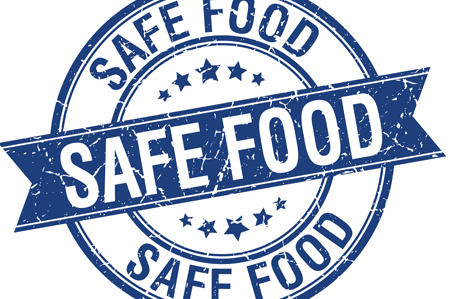Food Safety Risks, Costs, Waste Likely To Increase In ‘Clean’ Era
Category: Food Safety
 (Food Safety News) – Two veteran food science and human nutrition experts at Iowa State University are worried about food safety eroding and food waste piling up because of millennials’ demands “clean food.”
(Food Safety News) – Two veteran food science and human nutrition experts at Iowa State University are worried about food safety eroding and food waste piling up because of millennials’ demands “clean food.”
ISU Professors Ruth MacDonald and Ruth Litchfield say the individual choices food manufacturers are making to make “clean label” claims are having negative consequences when it comes to food safety, food waste and costs.
Clean labels refer to declarations on food made without additives, preservatives or chemicals. MacDonald and Litchfield fear too many decisions to remove additives are being made for marketing reasons alone without considering whether they increase food safety risks.
The professors cite the removal of nitrates from deli meats and hot dogs as one example. Nitrates are essential to preventing the growth of the potentially deadly Clostridium botulinum. Food packages using terms like “uncured” or “naturally cured” are likely using a natural source of nitrates such as celery juice as a substitute. However, the ISU professors say celery juice nitrates are not chemically different from synthetic forms.
Too much nitrate exposure may increase the risk for colon cancer, according to tests on animals. But nitrates are found in many fruits and vegetables with health benefits. And, the ISU professors say diets are complicated, with many factors influencing the potential effects of nitrates on the colon.
MacDonald says the public is having a hard time understanding the risks and benefits of their food choices. Often a chemical is seen as dangerous without knowledge that the risk without necessary food preservatives is much more significant.
Know your sources; avoid fake news on social media
Litchfield blames social media for being a “driver of distrust.” She urges consumers not to believe everything they read on social media. She recommends use the internet to track down original research instead.
She says people should understand how quickly manufacturers respond to consumer preferences and then ask themselves if those choices are based on science or the latest marketing-driven fad.
Food manufacturers may advertise “no high fructose corn syrup” on the label, but the body processes it the same as beet syrup, fruit sugars, or agave syrup that some food producers have turned to as substitutes. All are sugar — some just look more appealing on labels.
Litchfield says each person in the U.S. generates about 20 pounds of food waste each month, and the removal of additives and preservatives will only increase that amount. Sodium benzoate, calcium propionate and potassium sorbate have long been used to control the growth of microorganisms without changing the taste or character of the food.
Eliminating such additives is increasing the food safety risk and increasing the amount of food waste, Litchfield contends.
“Many food additives make the food structure more stable, such as keeping marshmallows soft and crackers crispy,” she explains. “Additives reduce off-flavors, prevent separation of liquids or oils, and give food a pleasant feel in our mouths. Taking these types of ingredients out of foods will probably increase the amount of food we throw away.”

